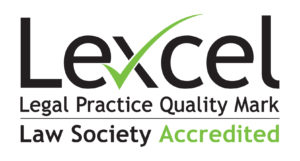Employment status is a topic of employment law that is constantly being debated, especially in the dental industry where it can be difficult to establish whether someone is genuinely self-employed, because of the way in which dental practices work. Most dental associates and a large proportion of hygienists and therapists will be engaged at a Practice as self-employed, however in reality it is the way in which those individuals work, rather than what is written on a piece of paper, that will determine their self-employed status. This is a topic that was addressed in the recent case of Varnish v British Cycling.
The facts
The self-employed individual was a track cyclist and her contract with British Cycling was not renewed due to performance, however she alleged this was an act of discrimination and unfair dismissal. The Employment Tribunal decided that she was not a worker or an employee and therefore could not be unfairly dismissed.
The Employment Appeal Tribunal (EAT) made the following observations in respect of the historical decisions on employment status:
- The requirement that there be a mutuality of obligation is simply a refinement of the requirement to provide work and skill to an employer;
- The ‘dominant purpose; test of what the main reason is for a person’s engagement can be used to distinguish between workers and non-workers as well as employees and non-employees;
- The starting point should usually be that an employee has lesser bargaining power than an employer and the lack of ability to negotiate individual terms will normally point towards rather than away from employee status;
- After weighing up the competing factors pointing towards employment status and away, the Tribunal should stand back and look at the whole picture before reaching a conclusion.
The decision
The tribunal in this case decided that the use of public funds from the National Lottery to provide coaching, the lack of remuneration from British Cycling to Ms Varnish and a grant from UK Sport that took the place of ‘wages’ was inconsistent with being an employee or a worker. The EAT decided that judgment was open to the tribunal where there was no challenge that the written agreement was a sham.
How this impacts you
This decision shows that the way that self-employed individuals are paid can have a huge impact on their self-employed status, therefore it is vital that the terms of any payment are clearly set out in a written Associate Agreement and these are followed in practice. Looking at the factors that the Tribunal relied on, it is also important to ensure that the parties to the Agreement have equal bargaining power and there is no mutuality of obligation.
At FTA Law we draft bespoke Associate Agreements that protect your Practice and contain various self-employed indicators. Contact our employment team on 0330 088 2275 or employment@fta-law.com for further information.
The team at FTA Law provides advice to clients across the commercial and healthcare sectors with many of our instructions coming from referrals from long standing clients and industry contacts.
Contact usWe understand that price is a big concern for our clients and we always aim to offer a fixed fee for our services.














